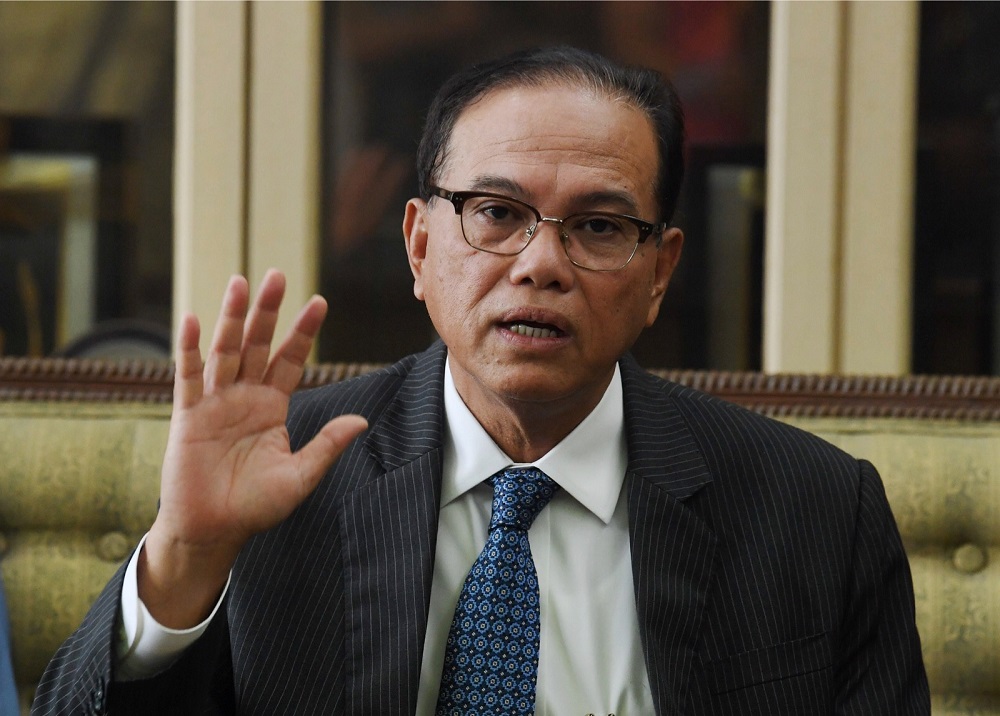Logging activities - after so long after MERDEKA(Independence), it is sad that Malaysia still do not depend on tree/planted tree farms for its logging needs - but still continue to log forest reserves and permanent forest reserves.
We all field the impact of global warming, floods, strong winds/rains, weather changes - all of which have had a serious impact on every human person, and for some even more especially the farmers and fisherfolk. Because of the increasingly hot weather, many of us have seen even our electricity bills going up - as increased needs for fans and air-conditioning.
Forest reserves and permanent forest reserves are very old - some millions of years old, in which, there not just TIMBER - but also a large variety of animal and plant species - some even endangered species - meaning that they could become instinct anytime and gone forever. Some plant species are sources of medicines - but how much of these have even been identified, and protected > too often some foreign national goes and gets a patent/copyright - WHY? Because Malaysian leaders have been just interested in short-term gains - rather than protection of our national resources. When an endangered species is detected in a forest, does Malaysia protect the species - the habitat - and do not allow that forest to be logged?
Malaysia portrays itself a a 'friend of the environment', and yes, we now have even ENVIRONMENTAL IMPACT ASSESSMENT(EIA) - that must be done before logging is allowed, but sadly, it is mandatory before logging is permitted if the affected area is 500 hectares or more - GUESS what, some States, even though the forest area is far more than 500 hectares, and the State really owns all these forest, do seem to avoid by parceling out areas less than 500 hectares to avoid EIA?
Logging forest reserves or permanent forest reserve is a very SHORT-SIGHTED approach by government/s - profits from timber, and then.... How much do we lose when we log permanent forest reserves which are hundreds and millions of years old.
What about WATER CATCHMENT - logging will certainly impact water catchments?
Most of our drinking water is processed from river waters - will logging activities impact drinking water production downriver?
Besides the orang asli, many people also depend on water and other forest resources - all gone after an area is logged.
HENCE, when it comes to logging - it is simply not about QUOTAS or 'ANNUAL FELLING RATIONS' - there are so many other important considerations, and it is hoped that the Pahang government will consider all this - short term gains from logging should not be the priority of governments - considering our awareness of the importance of environment, global warming, etc...
After more than 60 years of independence, States should have so many other economic resources - and should not be dependent on logging of forest reserves anymore...
Are the people near forest areas even consulted before logging licences are issued - the support of the JKKK(a State appointed body of persons) does not equal to consulting with the local community.. see also JKKK - denies or 'steal' peoples' rights to be consulted and involved before development, logging, etc decisions made? Let us elect our local leaders
Logging activities in Pahang in compliance with annual felling rationing, says MB

KUANTAN, Nov 20 — The Pahang state government has never carried out logging activities exceeding the Annual Felling Rationing (CTT) set by the National Land Council (NLC), said Mentri Besar Datuk Seri Wan Rosdy Wan Ismail.
He said under the 11th Malaysia Plan, the NLC had set the CTT area for Pahang at 13,687 hectares but in 2019, the logging area in Pahang only stood at 10, 313 hectares, which reflected the state’s good forest management.
“This stability shows that the state government has adopted the sustainable forest management practice in ensuring forest areas in the state remain preserved.
“An estimated 999,158 hectares of land or 64.43 per cent of permanent forest reserve areas are allowed to be logged while the remaining 551,528 hectares cannot be touched due to certain reasons including it has been gazetted as water catchment areas.
“Areas that can be logged will also be audited under the Malaysian Timber Certification Scheme (MTCS) conducted by the Malaysian Timber Certification Council that issues the Malaysia Criteria and Indicators For Forest Management Certification (MC&I),” he said while winding up the debate on the Supply Bill (Budget) 2021 at Wisma Sri Pahang here today.
On the oil royalty issue, Wan Rosdy said the state government would continue to discuss the matter with the federal government until a final decision on the matter is made.
Meanwhile, he said the Pahang State Development Corporation (PKNP) and TGA Solutions Sdn Bhd, the developer of the Tanjung Agas Oil, Gas and Maritime Industrial Park in Pekan were finalising the terms and conditions with several foreign investors to redevelop the project.
Wan Rosdy also announced a cash aid of RM50 for 15,054 students who
will sit for Sijil Pelajaran Malaysia (SPM) in the state, involving a
total allocation of RM752,700. — Bernama - Malay Mail, 20/11/2020





No comments:
Post a Comment